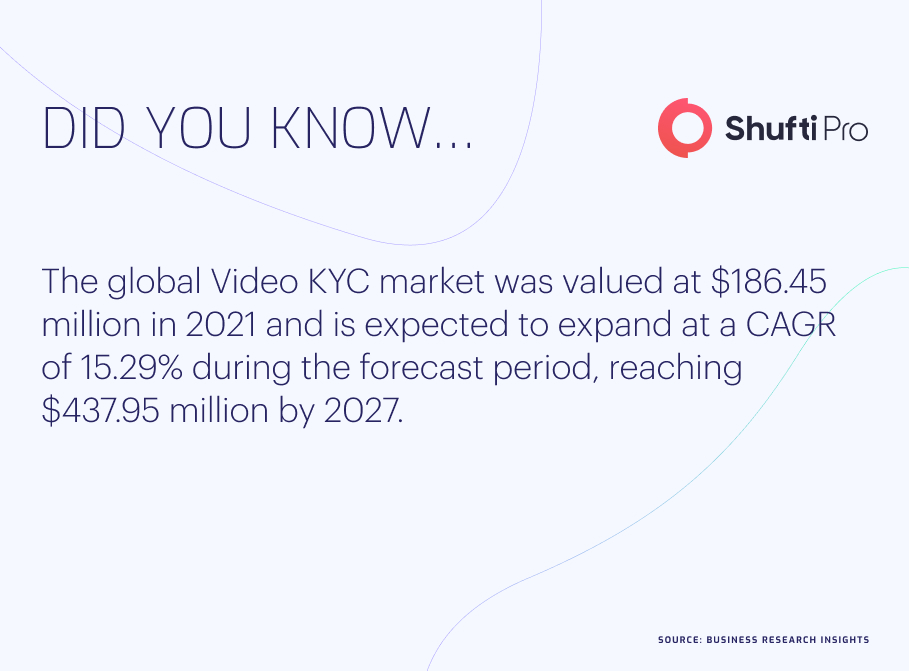Video KYC in 2024 | A Step Towards Digital Evolution

The striking surge in theft and fraud through digitisation is a growing concern for many businesses. Undoubtedly, artificial intelligence, machine learning, and modern technology have digitised the way businesses interact, deal, and work, but due to the unprecedented increase of modern technology and automation, this has further opened the door for fraudsters to penetrate business security through a variety of new means. Cybercriminals are always looking for loopholes in the processes so they can use sophisticated means and the same automated technology to steal from businesses. The threat of financial loss, identity theft and reputational damage is larger than ever due to new technological waves of innovation.
Scams in 2023 skyrocketed and resulted in the amount loss of $429,412,991 with 257,392 reports and a 10.1% increase in reports with financial losses. With investment scam loss of $259,086,597, to remote access resulted in a loss of $14,851,343.
Businesses are always looking for new and creative ways to improve customer experiences, increase security, and streamline processes in order to keep up with the rising number of thefts and frauds. Video Know Your Customer VKYC is one such invention that has gained popularity recently. This state-of-the-art technology has completely changed how companies comply with regulations and validate the identities of their clients. Learn what video KYC is, why it’s important and becoming more and more prevalent, the obstacles it will face in 2024, how it works, a step-by-step guide to verification, and what the future holds for it.
What is Video KYC?
Video KYC also known as Video Know Your Customer, is a streamlined procedure that enables companies to use video chats from any location at any time to remotely confirm the identification of any individual, including partners, clients, and consumers. It is a more sophisticated approach than the traditional KYC procedures, which require customers to physically visit the location or wait in queue and give piles of documentation to prove their identification. The entire verification process can be completed online with Video KYC, or VKYC, offering a practical, affordable, time-saving, and effective means of validating someone’s identity.
Traditional KYC and Video KYC
The Know Your Customer KYC process is a widely accepted and mandatory procedure in many industries, particularly financial institutions. Its primary goal is to guarantee that an organisation only transacts with trustworthy and legitimate clients and complies with AML (Anti-Money Laundering) regulations. Depending on the type of business, this may also involve compliance with local, state, and federal laws.
All of the functions of traditional KYC are performed by the video customer identification process, but it does so remotely, which improves security, reduces costs, and speeds up the process significantly. Individuals don’t have to stand in a queue to wait for their turn, and it can be done anywhere, anytime.
The Growing Need for Video KYC
According to the Scamwatch report, so far in 2023, attempts to gain personal information resulted in a loss of $47,663,679 with 126,777 reports, an increase of 2.9% reports with financial losses. Other than that, only the amount lost to identity theft has reached $7,918,961 with the number of reports 17,140 and an increase of 3.8% reports with financial losses, highlighting the dire need for an efficient KYC solution. Traditional KYC means are time-consuming, require manual effort, and are prone to human error. To conduct traditional KYC individuals and businesses are required to wait and even stand in long queues to wait for their turn. This is where video KYC plays its part and makes the processes simple and easy.
The widespread adoption of remote video verification can be attributed to its high level of efficiency and cost-effectiveness. Its strong security features are also highly sought after by organisations that need to use more advanced technology to combat the growing fraud threats whilst maintaining a seamless onboarding process to satisfy customers. Many industries have benefited from digitisation by gaining access to new technical tools that can expedite laborious, time-consuming procedures. But it has also provided thieves new ways to get beyond security controls, plunging us into a chaotic world of fraud. However, with the help of contemporary tools, people and organisations may defend themselves against money crime, identity theft, deepfakes, spoofing attacks, and other illegal actions.
A Step-by-Step Guide to Conducting Video KYC
Conducting video KYC is simple and doesn’t require long, hefty processes where individuals have to pay a visit to the offices to get verified. Individuals can get verified in just four steps, which saves time, manual effort, and unnecessary hassle or delay. Here’s a complete guide to conducting video KYC:
Sign Up
Individuals must sign up before beginning the video KYC process. Once they are signed in they are shared a live video call link with a KYC expert.
Liveness Detection
Once they have joined the video call, the KYC expert interviews the individual for liveness detection through facial recognition techniques to check whether the person is real or not.
Document Verification
Once liveness detection is done, individuals are asked to show the authorised document, like an ID card, passport, driver’s license, etc., in front of the camera and are matched and verified with the database and individual for document verification.
Facial Verification
Upon showing the documents, the final steps come where the individual face is matched through face check ID verification and verified to the document presented, and then the verification process is completed. In the final step, individuals are onboarded or rejected.

Video KYC Challenges in 2024
Financial institutions may encounter a number of difficulties when putting Video KYC into practice, despite the fact that it has several advantages. These challenges consist of:
Lack of Customer Awareness
A lot of clients would need to learn more about video KYC and be hesitant to employ the system. Financial institutions need to make an investment in teaching their clientele the advantages of video KYC and the proper way to utilise the platform.
Technical Challenges
Only certain areas may have a steady and dependable internet connection, which is necessary for video KYC verification. Financial organisations need to make sure that their video KYC platform works with a range of gadgets and operating systems and can run efficiently over low-bandwidth connections.
Regulatory Compliance
Financial organisations are subject to national and international laws protecting data privacy and KYC. They are responsible for making sure that customer data is managed safely and appropriately and that the video KYC process complies with these standards.
The Future of Video KYC
Video KYC is just one practice that is digitising and automating the KYC processes. Businesses and individuals are using video KYC to stay abreast of the presented challenges, saving them time, manual effort, and unnecessary delays. It is a cost-effective and efficient solution for verification, which can be done anywhere, anytime. Video KYC, together with liveness detection, document verification, and face verification, has changed the way due diligence processes, and it will only be enhanced over time and in the near future.
As we step into 2024, we expect to see more advanced technologies, such as blockchain and digital identity, integrated into KYC processes. Blockchain technology can offer a transparent and safe means of storing and exchanging customer data, improving the effectiveness and security of the KYC procedure. Financial companies will be able to securely control and share client data with digital identification systems like Self-Sovereign Identity (SSI).
Financial institutions will use digital technologies to streamline, expedite, and secure the KYC verification process. Financial institutions will gain from more efficiency and lower risk, whilst individuals will enjoy a more convenient and smooth experience.
How can Shufti Help?
Shufti video KYC solution uses cutting-edge technology that is utilised by our KYC experts to detect even the most complex fraudulent attempts, protecting businesses against identity theft, fraud, and other financial crimes. Our tools represent our worldwide company’s commitment to building trust on a global scale. Our clients have a track record of raising customer satisfaction levels and boosting conversion rates whilst upholding national and international regulatory compliance and real-time verification solutions that are accessible anytime, anywhere. Our video KYC solution is available in 240+ countries and territories, supporting 150+ languages to seamlessly verify and onboarding individuals in real-time.
Want to save your business operation and verify customers with video KYC anywhere, anytime?











